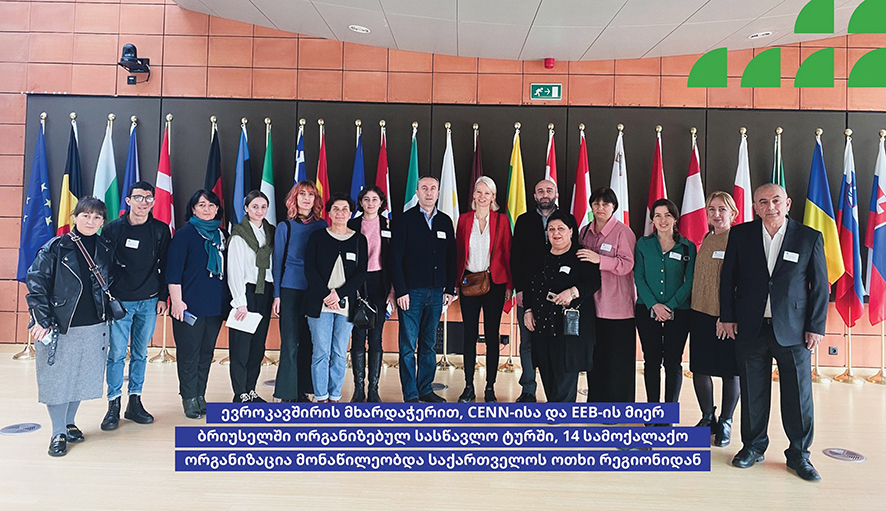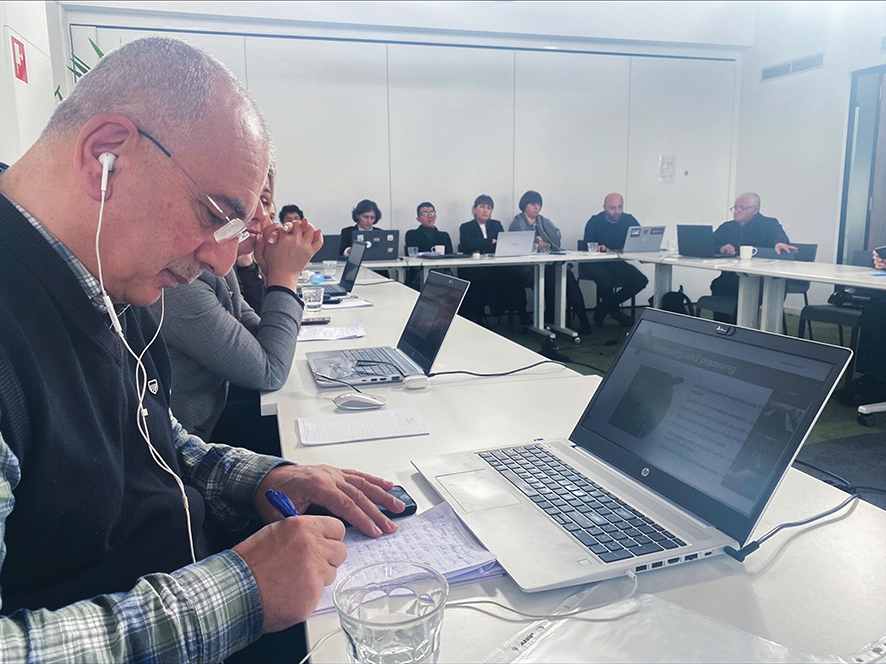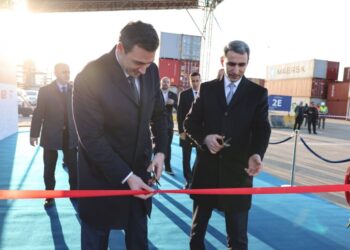From 5 to 10 November, CENN, with the support of the European Union, within the framework of the ongoing EU-funded project Georgia Climate Action Project (GEO-CAP), organized a five-day study tour in Brussels, Belgium, hosted by the European Environmental Bureau (EEB). The study tour gathered 14 representatives of civil society organizations and members of Climate Action Groups from the four focal regions of the project: Guria, Imereti, Kakheti, Racha-Lechkhumi and Lower Svaneti.

The tour aimed to showcase the European policy-making practices to the Georgian local civil society organizations. The EEB, which is a network of around 180 environmental citizens’ organizations based in more than 40 countries, offered a comprehensive program that combined informative presentations, networking opportunities, and practical engagements with policymakers and experts in environmental sustainability.
During the visit, presentations on the structure and political landscape of the EEB were featured. In addition to other topics, the sessions addressed key policy areas such as agriculture, climate, renewables, and environmental justice. This program also incorporated talks on coalition building and legislative updates. Various experts and organizations discussed topics such as economic transition, citizen engagement, and communication strategies. At the end of the tour, a meeting was organized with Katarina Grzeszczyk Albrechtova, administrator in charge of Eastern Partnership at the EU Commission, working with the civil society and associations in Eastern European countries under the EU’s Association Agreement. The session revolved around discussions about civil society platforms in Georgia under the EU’s Association Agreement and the plans and opportunities for CSOs within the potential enlargement package.

Overall, the study visit provided participants with a great opportunity to engage with the EU policy landscape, fostering a deep understanding of environmental issues. Beyond the discussions and practical engagements with policymakers in the environmental sector, the event also facilitated networking and the establishment of new contacts on both international and regional levels. Attendees had a unique chance to build connections within the environmental advocacy community, contributing to a broader exchange of ideas and collaborative efforts. This multifaceted approach ensures that participants not only gain valuable insights into environmental policy but also create meaningful connections to enhance further their impact on sustainability initiatives both within and beyond the European context.
Background information
The study tour was organized within the EU-funded “Georgia Climate Action Project (GEO-CAP)”, which promotes civil society engagement in climate change (CC) policy design and implementation. The project is being implemented by CENN with its partner organizations, KRDF, ACU, YPU, and RLS-ADA, in the project’s focal regions of Georgia: Guria, Imereti, Kakheti, Racha-Lechkhumi and Lower Svaneti.














